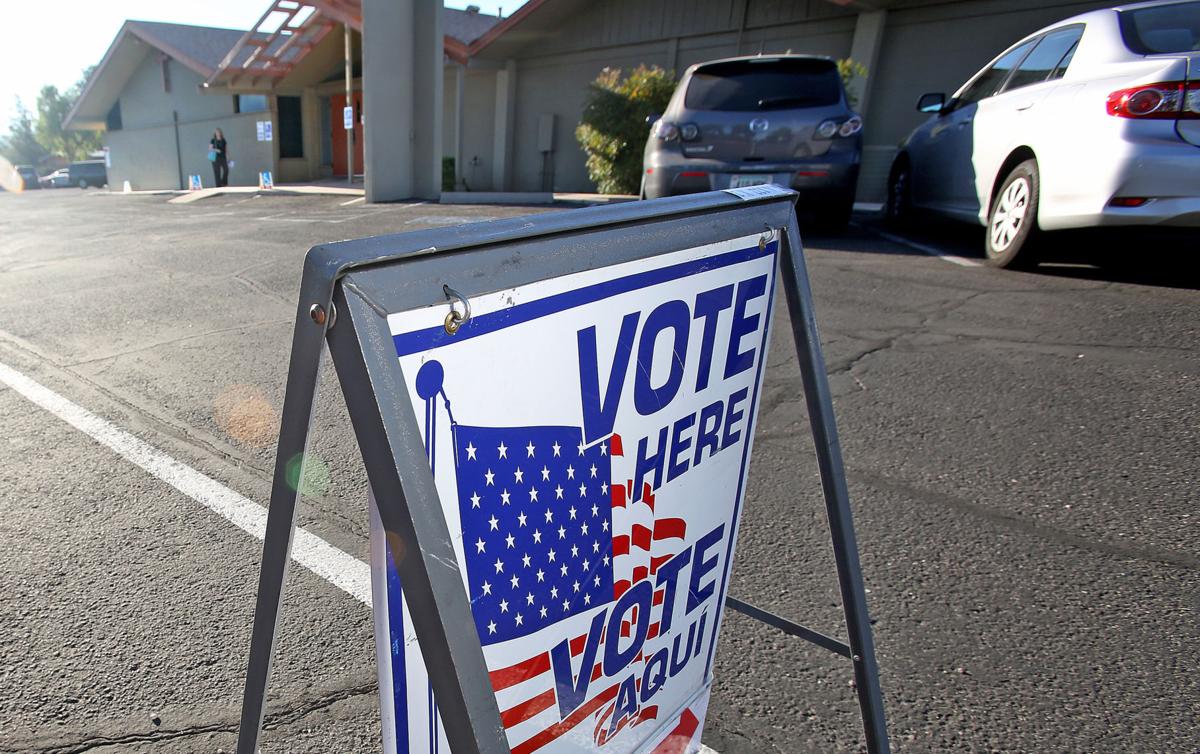How far residents of the Pascua Yaqui reservation have to travel to cast an early ballot will depend on whether a judge finds discrimination played a role when Pima County eliminated an early voting site.
Pima County Recorder F. Ann Rodriguez says it did not, and that it’s just a matter of numbers. She said there weren’t enough people using the early voting site during the last presidential election four years ago.
But the tribe points to provisions of the federal Voting Rights Act that limit the ability of state and local officials to take any action that disproportionately affects the rights of protected minorities, including Native Americans.
U.S. District Court Judge James Soto could sidestep the issue, at least for now, by simply ruling the tribe waited too long to file suit a week ago.
The tribe wants the judge to order Rodriguez to set up the early voting site for five days beginning Monday, Oct. 26.
Soto said he hopes to rule by Thursday, Oct. 22.
Tribal Chairman Peter Yucupicio talked of a history of discrimination.
“Some of us walked these lands way before everybody else,” he told the judge. “We welcomed everybody, along with all the other tribes in Arizona. And yet we still fight to be equal.”
But Rodriguez’s attorneys hope to convince Soto the decision has nothing to do with race.
Chris Roads, the county elections director, detailed the factors used in deciding where to put the sites.
Part of the decision is based on population, with areas of greater density getting a higher concentration of places for people to cast their ballot before Election Day or drop off their early ballots, he said. There’s also the question of whether a facility is available.
Roads said the concerns about foreign influence in 2016 led to choosing locations that could be physically secure, with cameras, enhanced locks on doors and, where available, hard-wired internet access.
He said sites offered by the tribe were not appropriate.
Ever wonder why Americans vote on the first Tuesday after the first Monday in November? Like many traditions, the practice goes back a long ti…
An expert called by Rodriguez testified that of the 248 early voting sites used by Pima County in 2016, the turnout at the one on the Yaqui reservation was No. 217. Just 44 people used it during an entire week, and of those only 29 actually lived within the precinct, the judge was told.
That, however, may not matter.
The way tribal attorneys put it, Soto has to evaluate the “totality of the circumstances” to determine whether there is a legally significant relationship between a decision with a disparate impact on minority voters and the “social and historical conditions affecting them.”
One of those is the history of official discrimination. That includes not just the fact the Arizona Constitution barred Native Americans from voting in state elections until 1948, but also that literacy tests and other barriers existed for decades afterward.
Another is the extent to which members of minority groups have been elected to public office.
There was testimony that no Native American has ever been elected to statewide office or to Congress in Arizona.
But there also was no evidence that any Native American had ever sought one of those offices.
Part of the defense mounted by Rodriguez is that there are alternatives to having an early-voting site on the reservation, and not just because there is one at Mission Library, which is 8.5 miles farther away. There also is the option of requesting an early ballot and dropping it in the mail.
But Rebecca Lewis, an administrative support specialist for the tribe who is involved in voter outreach, said that’s not an answer for many tribal members.
“Mailed ballots can be tossed for errors,” she told Soto, versus any problems with ballots being resolved at an early-voting location when they are cast.






